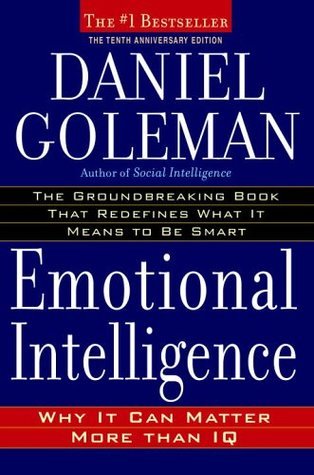Emotional Intelligence Book Summary
Why It Can Matter More Than IQ
TL;DR
Daniel Goleman's "Emotional Intelligence" explores the critical role of emotional intelligence (EI) in achieving success, happiness, and effective relationships, arguing it often outweighs traditional IQ.
What is Emotional Intelligence about
In "Emotional Intelligence: Why It Can Matter More Than IQ," Daniel Goleman presents a paradigm shift in understanding intelligence, emphasizing that emotional intelligence is a vital component of personal and professional success. Goleman integrates findings from psychology and neuroscience to explain how the interplay between rational and emotional minds influences our behavior and decision-making. He identifies key components of emotional intelligence—self-awareness, self-regulation, motivation, empathy, and social skills—and demonstrates that these traits can be cultivated throughout life, challenging the notion that intelligence is solely fixed at birth. The updated edition reflects the contemporary relevance of emotional intelligence, particularly in an increasingly digital world, highlighting its importance in navigating personal and societal challenges.
Emotional Intelligence 8 Key Takeaways
Emotional intelligence is critical for success.
Goleman argues that emotional intelligence often plays a more significant role in personal and professional success than traditional cognitive intelligence (IQ). Individuals with high EI can navigate social complexities and foster strong relationships.
Emotional intelligence encompasses five key components.
The five main areas of emotional intelligence identified by Goleman are self-awareness, self-regulation, motivation, empathy, and social skills. Mastery of these skills can lead to improved communication and better emotional management.
Emotional intelligence can be developed.
Contrary to the belief that intelligence is fixed, Goleman emphasizes that emotional intelligence can be nurtured and developed across a person's lifespan, leading to better outcomes in health, work, and relationships.
Self-awareness is the foundation of EI.
Understanding one’s own emotions and how they influence thoughts and behavior is crucial. Self-aware individuals are better equipped to manage their reactions and engage with others empathetically.
Empathy enhances interpersonal relationships.
Empathy, the ability to recognize and understand the emotions of others, is a critical element of emotional intelligence that fosters stronger connections and effective communication.
Self-regulation promotes resilience.
The capacity to manage one’s emotions and impulses effectively allows individuals to remain grounded and resilient in challenging situations, improving decision-making.
Motivation drives achievement.
Intrinsic motivation, fueled by self-awareness and purpose, is essential for personal growth and achieving long-term goals.
Social skills are essential for collaboration.
Developing strong social skills enables effective teamwork and conflict resolution, which are essential in both personal and professional settings.
Top Emotional Intelligence Quotes
- "Emotional intelligence is not about being nice. It's about being aware, understanding how your emotions affect others, and navigating those dynamics effectively."
- "The ability to perceive and control emotions is the essence of emotional intelligence."
Who should read Emotional Intelligence?
This book is ideal for individuals seeking personal and professional development, educators, leaders, and anyone interested in understanding the emotional aspects of human relationships. Readers will gain valuable insights into enhancing their emotional skills, leading to improved interactions and overall well-being.
Emotional Intelligence Best Reviews
- "Goleman's book is a groundbreaking exploration of the emotional skills that underpin success and happiness. A must-read for anyone looking to improve their interpersonal effectiveness." - The New York Times
- "A transformative book that reshapes our understanding of intelligence in a rapidly changing world. Goleman provides invaluable insights on how to navigate our complex emotional lives." - Psychology Today
People also liked these summaries
Emotional Intelligence FAQs
What are the main components of emotional intelligence?
The five main components of emotional intelligence are self-awareness, self-regulation, motivation, empathy, and social skills, all of which contribute to effective emotional and social functioning.
Is emotional intelligence fixed or can it be developed?
Emotional intelligence can be developed and nurtured throughout life, contrary to the belief that intelligence is solely fixed at birth. Goleman emphasizes that practices and experiences can enhance EI.
How does emotional intelligence impact success?
High emotional intelligence contributes significantly to success in personal and professional domains, as it enables better communication, stronger relationships, and improved decision-making.


